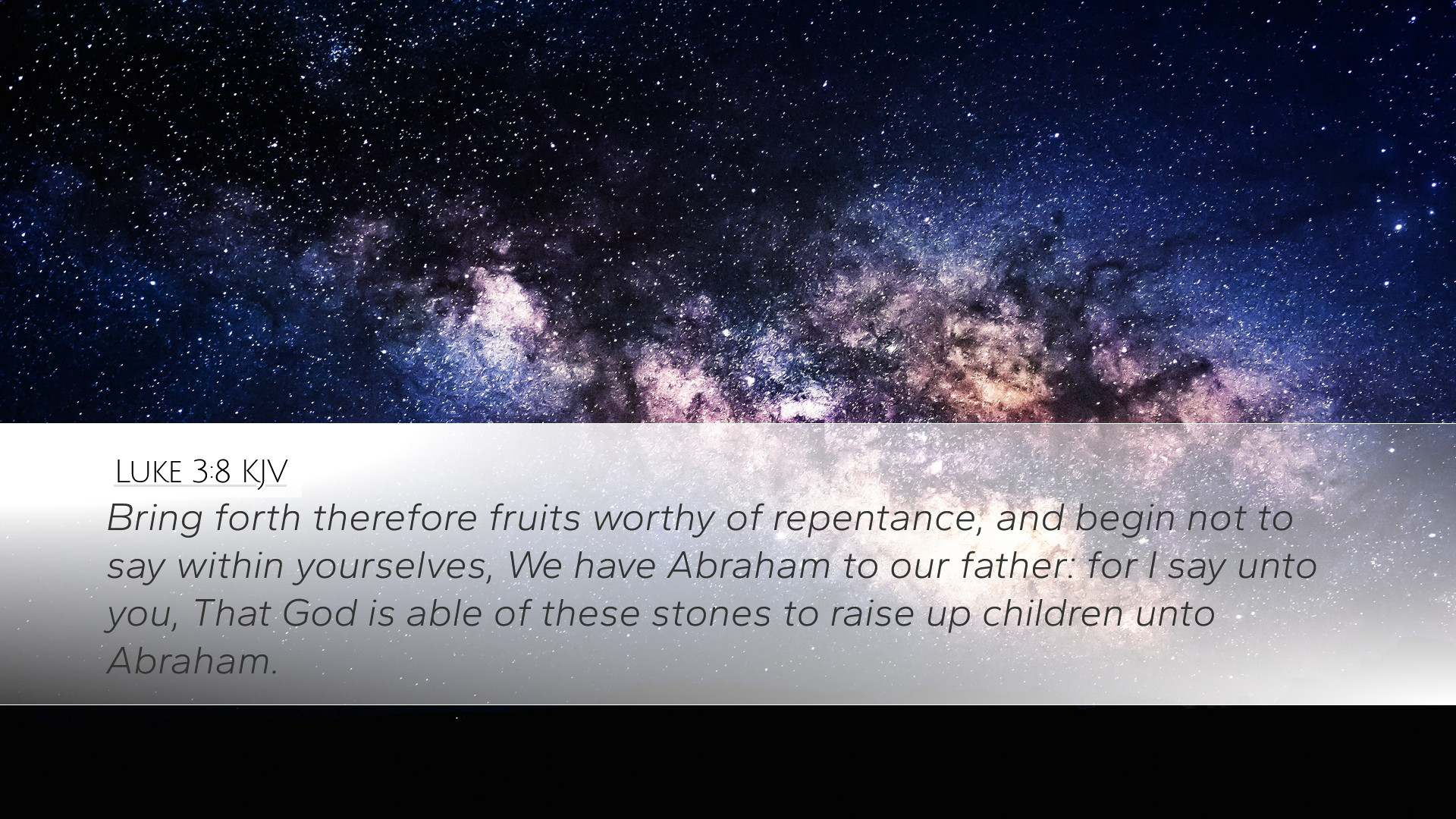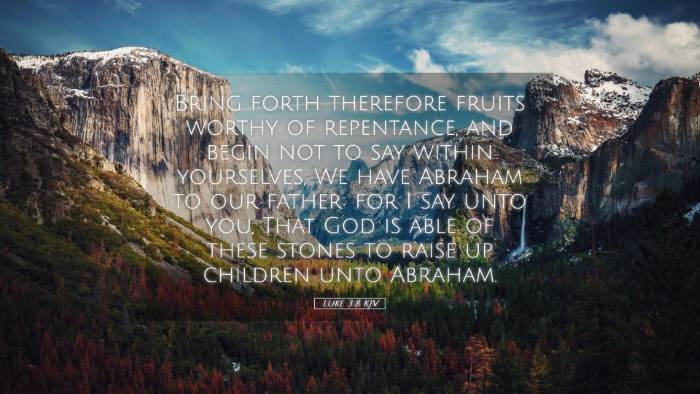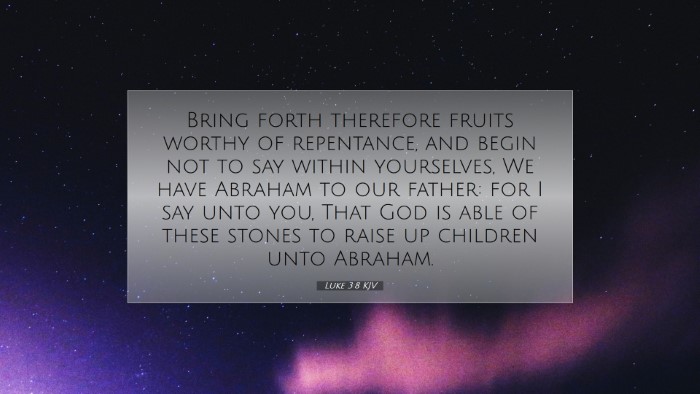Commentary on Luke 3:8
Luke 3:8 states: "Bring forth therefore fruits worthy of repentance, and begin not to say within yourselves, We have Abraham to our father: for I say unto you, That God is able of these stones to raise up children unto Abraham."
Introduction
This verse encapsulates a pivotal moment in John's ministry as he prepares the way for Christ. The call for genuine repentance and the evidence of such repentance—that is, the "fruits worthy of repentance"—is a theme central to the Gospel. John the Baptist's proclamation serves as a precursor to the transformative message of Jesus, emphasizing the necessity of authentic faith over mere lineage or heritage.
Historical Context
In the time of John the Baptist, many Jews were inclined to rely on their ancestry as a marker of righteousness. This sentiment is reflected in their claim to Abraham as their father. John’s ministry challenges this complacency, calling the people to a deeper understanding of what it means to be part of God’s covenant community.
Exegesis of Key Phrases
This verse can be unpacked into several important components:
- "Bring forth therefore fruits worthy of repentance": This call emphasizes that true repentance involves action. It is not merely an emotional or intellectual acknowledgment of sin but must manifest in tangible outcomes.
- "Begin not to say within yourselves, We have Abraham to our father": John confronts the false security that many Jews found in their heritage. The reliance on ancestry is challenged by the idea that divine relationship is not inherited but must be earned through faith and obedience.
- "God is able of these stones to raise up children unto Abraham": This striking imagery illustrates God's sovereignty and the idea that He can create a people for Himself from the most unlikely sources, reiterating that God's grace is not constrained by human lineage.
Theological Implications
John's message is profoundly theological, presenting the following implications for readers:
- The necessity of fruitfulness: Repentance is more than remorse; it should result in a life demonstrating godliness and righteousness.
- Rejection of entitlement: No one has a claim on God’s promises because of their ancestry, pointing instead to the necessity of personal faith and repentance.
- God’s ability to create new life: God’s sovereignty means that He can raise a people from stones, indicating the inclusivity of the Gospel and the radical transformation available to all.
Matthew Henry's Insights
Matthew Henry emphasizes the importance of genuine repentance. He notes that fruits of repentance are critical as they serve as indicators of a change of heart. Henry further comments on the importance of personal accountability in the faith journey, suggesting that heritage does not absolve individuals from the need for personal repentance.
Albert Barnes' Commentary
Albert Barnes highlights the radical nature of John's call. He argues that John's prophecy points to the fact that God’s covenantal promises extend beyond the Jewish people, illuminating God's plan to include all nations. Barnes notes that John's use of the word "stones" indicates a creative power of God that transcends human limitations and assumptions regarding identity and belonging.
Adam Clarke's Viewpoint
Adam Clarke discusses the significance of the phrase "children unto Abraham," drawing connections to God’s covenant. He reflects on the implications of lineage versus faith, indicating that while Abraham is the father of the faithful, every individual must exercise personal faith to align with that identity. Clarke underscores the importance of active faith in the believer's life, stating that it is the evidence of true repentance.
Applications for Today’s Believers
Luke 3:8 carries profound lessons for modern Christians:
- Examine personal fruits: Believers are called to reflect on their lives—what fruits are being produced as evidence of their repentance? Are their lives marked by the love, joy, and peace that come from a right relationship with God?
- Reject complacency: Like the Jews of John’s day, modern believers must guard against a false sense of security based on family heritage or church attendance. A true relationship with God requires active and ongoing faith.
- Embrace God's sovereignty: Recognizing that God can and does work through unexpected means encourages believers to remain humble and open to how God might use anyone, regardless of their past or status, for His glory.
Conclusion
Luke 3:8 presents a pivotal challenge to the understanding of faith, ancestry, and the nature of God’s call in the life of every believer. The insights drawn from historical, theological, and exegetical perspectives provide a holistic view that is beneficial for pastors, students, theologians, and scholars alike. The call for fruits worthy of repentance serves not only as a historical admonition but as an enduring challenge to live out one’s faith actively and authentically.


